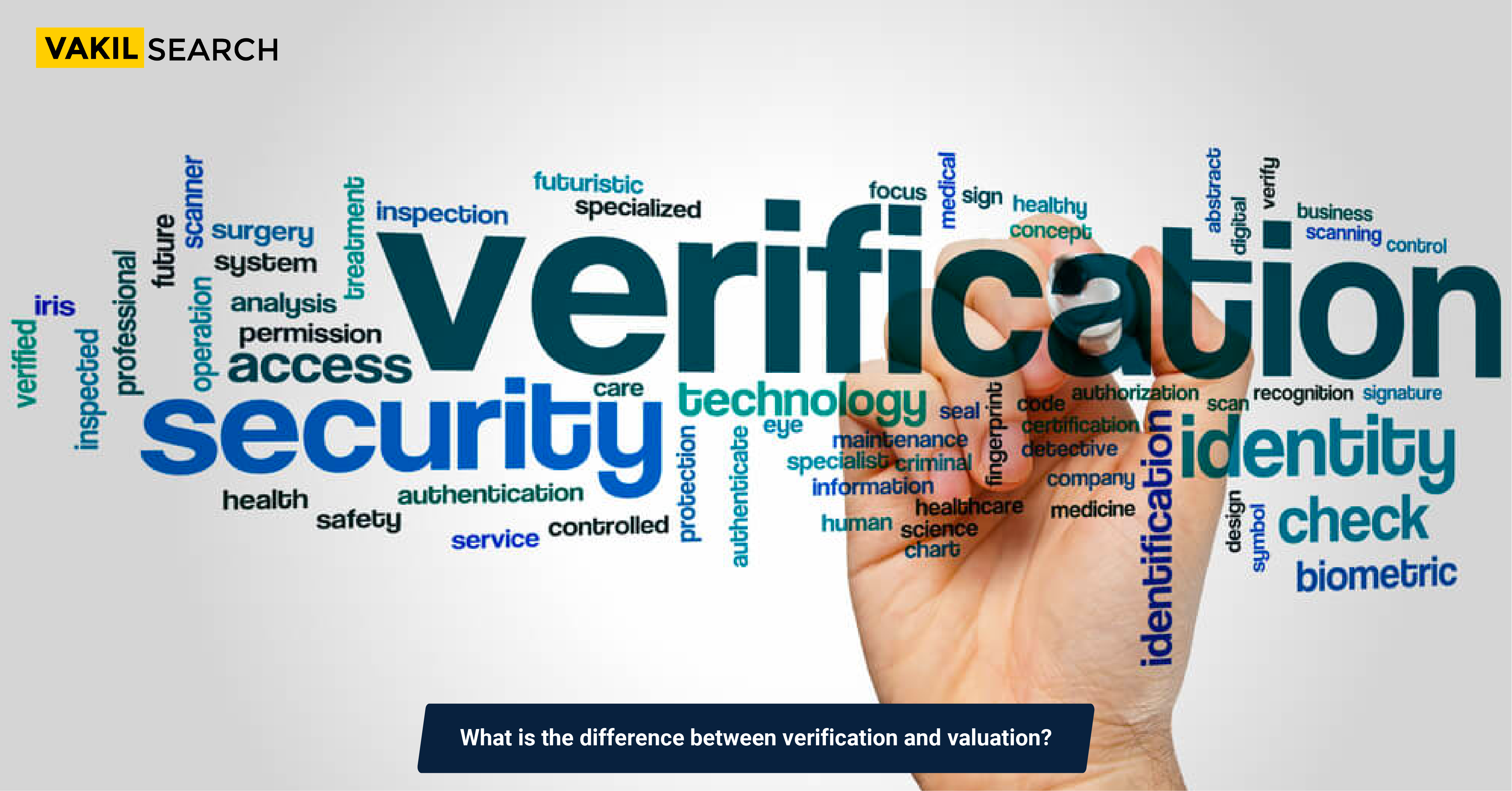Verification and valuation are two distinct processes often confused in property transactions. While verification focuses on the accuracy and completeness of information, valuation determines the property's market value. Both are crucial for making informed decisions and protecting your interests.
Introduction
Property transactions are complex and involve a significant financial investment. It is essential to understand the different processes involved to make informed decisions and protect your interests. Two key processes that are often confused are verification and valuation.
What is Verification?
Verification is the process of checking the accuracy and completeness of certain information. In the context of property, this involves verifying the property’s ownership, title, and encumbrances. It also includes checking the accuracy of the property description, such as the square footage, location and amenities.
Verification is crucial for several reasons:
- First, it helps to ensure that the property you are buying or selling is as described. This can help to avoid potential disputes and costly surprises down the road.
- Second, verification can help to identify any potential liens or encumbrances on the property. This is important to know before you purchase a property, as it could affect its value and your ability to sell it in the future.
What is Valuation?
Valuation is the process of determining the market value of a property. This involves considering a variety of factors, such as the property’s location, condition and features. It also includes comparing the property to similar properties that have recently been sold in the area.
Valuation is important for several reasons:
- First, it helps to ensure that you are paying a fair price for the property you are buying. It can also help you to set a realistic asking price
- Second, valuation is required for certain financial transactions, such as obtaining a mortgage or refinancing a loan.
How is Verification and Valuation Connected?
Verification and valuation are often interrelated processes. For instance, a valuer may need to verify certain information about the property before they can provide an accurate valuation. For this, the valuer may need to verify the property’s square footage, location, and amenities.
Similarly, a buyer or seller may want to obtain a valuation before verifying the property’s ownership, title, and encumbrances. This is because the valuation can help them determine whether the property is worth the asking price or selling price.
| If you are planning to buy or sell a property, it is important to consult with a qualified lawyer from Vakilsearch to ensure that your interests are protected. You can also contact Vakilsearch to learn more about their RERA registration and complaint filing services. |
Professionals involved in Verification and Valuation
Verifications are typically performed by a lawyer or conveyancer. They will review the property’s title and other documentation to ensure that the property is as described and that there are no outstanding liens or encumbrances.
Valuation is typically performed by a qualified valuer. Valuers are experts in the property market and have the skills and experience necessary to assess the value of a property.
Outcomes Expected from Verification and Valuation
The expected outcomes of verification and valuation vary depending on the specific purpose of the process. For example, if you are buying a property, you may expect the verification process to confirm the property’s ownership, title, and encumbrances. You may also expect the valuation process to provide you with an accurate estimate of the property’s market value.
If you are selling a property, you may expect the verification process to help you identify any potential liens or encumbrances that could affect the sale of the property. You may also expect the valuation process to help you to set a realistic asking price.
Get Expert Advice!
Vakilsearch is a leading online legal services platform that provides a variety of services, including RERA registration and complaint filing services. Vakilsearch’s team of experienced lawyers can help you ensure that the property you are buying or selling is in compliance with all applicable RERA regulations. They can also help you file a complaint with RERA if you have any ongoing disputes with your builder or developer.
Get help today!
FAQs
What is the difference between verification and valuation?
Verification is the process of checking the accuracy and completeness of information, while valuation is the process of determining the market value of a property.
Why are verification and valuation important in property transactions?
Verification and valuation are important in property transactions for several reasons. First, they can help to avoid potential disputes and costly surprises down the road. Secondly, verification can help to ensure that the property you are buying or selling is as described and that there are no outstanding liens or encumbrances. Thirdly, valuation helps to ensure that you are paying a fair price for the property you are buying or that you are setting a realistic asking price if you are selling your property. Fourthly, verification and valuation are often required for certain financial transactions, such as obtaining a mortgage or refinancing a loan.
What are the benefits of using Vakilsearch's RERA registration and complaint-filing services?
Vakilsearch has a team of experienced lawyers who can help you ensure that the property you are buying or selling is in compliance with all applicable RERA regulations. They can also help you file a complaint with RERA if you have any disputes with an errant builder or developer.
Conclusion
Verification and valuation are two important processes in property transactions. Understanding the key differences between these processes and their significance allows you to make informed decisions and protect your interests.










